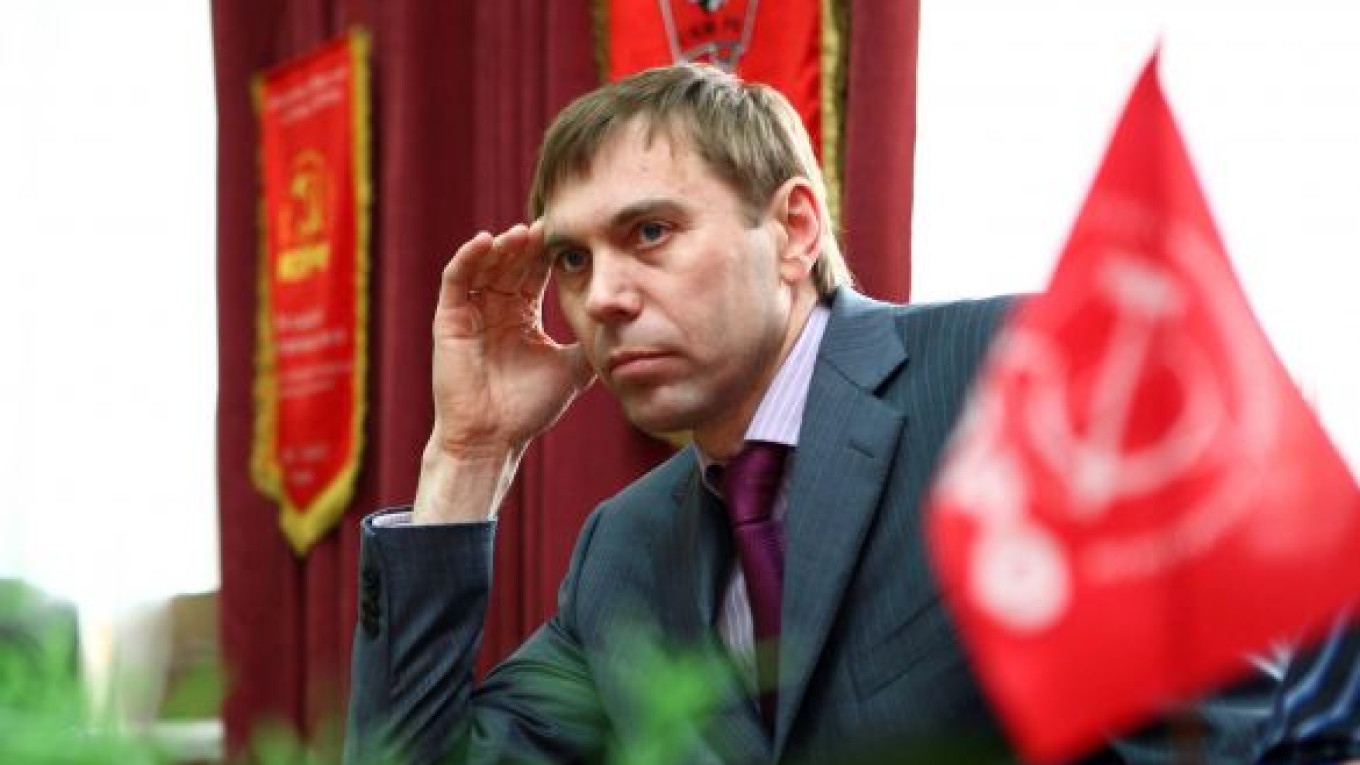IRKUTSK — The new mayor of Irkutsk says his election should ring alarm bells for Russia's ruling elite.
Viktor Kondrashov, a businessman who ran on a Communist Party ticket but is not a Communist himself, routed a rival from Prime Minister Vladimir Putin's United Russia in the March 14 vote — the most glaring of several setbacks for the ruling party in elections around the country that day.
In an interview with Reuters, Kondrashov called United Russia an ineffectual force of squabbling elites. As citizens struggle through the worst economic slump in a decade, he said, its support could fade further nationwide if it does not change.
"Our city simply turned into a swamp. There was this never-ending fighting, local elites vying for influence, while progress stopped," he said. "People voted for changes, for a new life."
Kondrashov, an urbane, soft-spoken 48-year-old, was speaking at the modest regional Communist Party headquarters.
But the successful businessman, whose operations range from producing building materials to large construction projects, stressed that he was not a member of the Communist Party and did not entirely share its ideology.
"I made it clear from the very beginning that I would like to remain nonpartisan, but at the same time I need the support of an opposition party, because otherwise it is impossible to remove the ruling elite and the ruling party," he said.
United Russia dominates politics nationwide, from the State Duma in Moscow to many mayor's offices. Its chief source of support is the popularity of Putin.
United Russia easily won all eight regional legislative elections held March 14, but its share of the vote declined in seven of them from a national election in 2007.
Communist candidates were elected mayor in five cities and towns, but Irkutsk, a major East Siberian regional capital of 650,000 people, was their biggest trophy.
The city shows signs of neglect everywhere.
Rickety 19th-century wooden huts dot the city center, and cars buck slowly along potholed roads.
Irkutsk's days as a Soviet industrial hub are long gone, and some factories shut down in the 1990s have been turned into "shopping malls" — jumbles of small stores reselling cheap Chinese merchandise.
But the city's aviation plant remains in business, producing Sukhoi's Su-30MK jet fighters.
Kondrashov said that as mayor he plans to invest in social infrastructure, building children's sports schools and an ice hockey arena that was put on hold six years ago.
He suggested that he sees his support base — and a rising Russian political force — not among the city's poor but rather the sizeable number of well-dressed young middle-class couples that he was pleased to see driving smart cars to the polling stations.
"These are mainly people who had never voted because they have succeeded in life anyway. But maybe they see me as the one who can change the lives of their children," he said. "People need to live, they need to develop in this city, not just blindly follow the directives of the ruling party."
Kondrashov may face an uphill battle in a region whose government and legislature largely support United Russia.
But he suggested that some regional lawmakers were just paying lip service to the dominant party.
"Many deputies in the legislative assembly helped me in the election, so I don't see why they shouldn't continue doing so in future," he said. "They were formally on the opposite side but in fact were running with me."
A Message from The Moscow Times:
Dear readers,
We are facing unprecedented challenges. Russia's Prosecutor General's Office has designated The Moscow Times as an "undesirable" organization, criminalizing our work and putting our staff at risk of prosecution. This follows our earlier unjust labeling as a "foreign agent."
These actions are direct attempts to silence independent journalism in Russia. The authorities claim our work "discredits the decisions of the Russian leadership." We see things differently: we strive to provide accurate, unbiased reporting on Russia.
We, the journalists of The Moscow Times, refuse to be silenced. But to continue our work, we need your help.
Your support, no matter how small, makes a world of difference. If you can, please support us monthly starting from just $2. It's quick to set up, and every contribution makes a significant impact.
By supporting The Moscow Times, you're defending open, independent journalism in the face of repression. Thank you for standing with us.
Remind me later.


